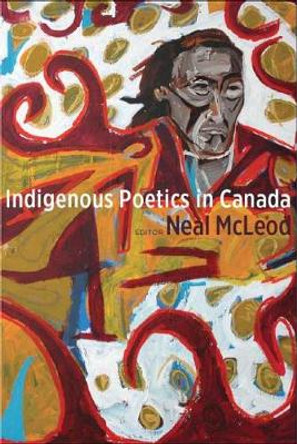Description
About the Author
Neal McLeod holds a doctorate in Interdisciplinary Studies, and currently teaches Indigenous Studies at Trent University in Peterborough, Ontario. In addition to being a visual artist and entertainer, he has published a book of poetry, Songs to Kill a Wihtikow, and has another forthcoming entitled Gabriel's Beach. He is Cree and Swedish, and was born and raised in Saskatchewan.
Reviews
Within contemporary Aboriginal discourse, there is a growing tendency to ignore the multilayered histories of various Aboriginal communities in favor of a more simplified discourse based on tribal specific nationalism. Cree Narrative Memory, an important new book, ignores this movement towards essentialism and tackles the multilayered histories of the nehiyawak (Cree People) of western Canada. The author contributes a detailed, visionary study of Cree discourse, exploring the little considered ambiguous genealogy and narrative irony of Plains Cree identity, a central factor in the book's fresh perspectives, analysis, and conclusions.
Though many books draw upon oral history and storytelling, few have drawn so heavily upon the oral history and genealogies that permeate one family tree in order to highlight the narrative ironies that emerge when attempting to create a national discourse of the Plains Cree Nation. By drawing upon the narrative memory of his family from the James Smith and Sandy Lake reserves in Saskatchewan, Neal McLeod gives firsthand examples of the determination and adaptability of Plains Cree experience. The author shows how stories are vital to the understanding of Cree history and the recent attempts to revive religious ceremonies, language, political structures, and artistic or literary practices. McLeod also contends, however, that "Cree narrative memory is more than simply storytelling." It involves the collective, intergenerational memories of many skilled storytellers. Through the examinations of family, spirituality, identity, and connections through time and space of the Plains Cree people, the author has constructed an original interpretative framework that draws upon original research showcasing the power and importance of language.
Chapters cover the Cree narrative of place, rethinking of the spirit of Treaty 6, the spirit of resistance, spatial and spiritual exile of the reserve system and residential schools, the importance of stories including humor, contemporary Cree political identity and institutions, and contemporary Cree narrative imagination. The book provides a new approach to understanding Cree historiography, and does so in a highly accessible manner augmented with extensive use of the Cree language. The study is well organized and well written, useful to both scholars and students. It is also an important work for those seeking an original approach to contemporary Aboriginal discourse or an alternative to the growing tendency towards tribal specific nationalism through an original interpretive framework.
-- Bret Nickels, Department of Native Studies, University of Manitoba * Great Plains Quarterly, Spring 2009 *Book Information
ISBN 9781895830316
Author Neal McLeod
Format Paperback
Page Count 144
Imprint Purich Publishing
Publisher Purich Publishing
Weight(grams) 200g







